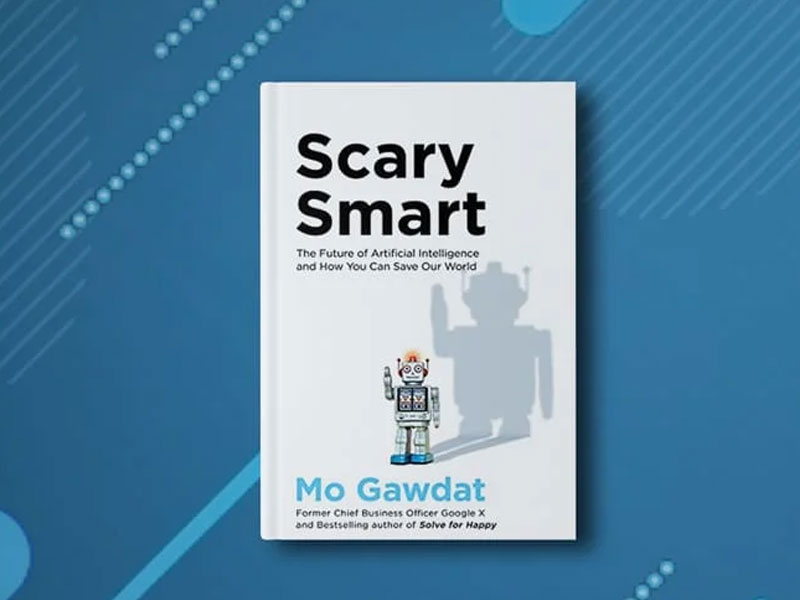Book review: scary smart: the future of artificial intelligence and how you can save our world
SOURCE: ANALYTICSINSIGHT.NET
OCT 06, 2021

This article will give you a review of the book “Scary Smart: The Future of Artificial Intelligence and How You Can Save Our World”.
Artificial intelligence outperforms human intelligence. It can digest data at breakneck speed and stay concentrated on a single job without being distracted. AI can forecast events in the future and utilize sensors to look around physical and virtual corners. So, why does AI get it so wrong all of the time? We are the solution. The algorithms that describe how artificial intelligence works are created by humans, and the processed data represents an imperfect reality. Is this a sign that we’re doomed? Scary Smart, by Mo Gawdat, the worldwide popular author of Solve for Happy, answers this issue and demonstrates what we can all do right now to educate ourselves and our machines on how to live better. No one is better qualified than Mo Gawdat to explain how the Artificial Intelligence of the future works, given his more than thirty years of experience working at the bleeding edge of technology and his prior job as Google [X]’s top commercial officer.
AI will be a billion times smarter than humans by 2049. Scary Smart discusses how to correct the present course today for AI in the future to be able to save the human species. This book provides a roadmap for what we can do to protect ourselves, our loved ones, and the world as a whole. Mo Gawdat said that technology is placing our humanity in jeopardy on a never-before-seen scale. This book is not intended for code writers or policymakers who claim to be able to govern it. This is the book you’ve been looking for. Because, believe it or not, you are the only one who can solve the problem.
Mo Gawdat is a serial entrepreneur and the author of the best-selling Scary Smart and Solve for Happy. Mo has cofounded over twenty companies in industries including health and fitness, food and beverage, and real estate. In the Middle East and Eastern Europe, he sat on the boards of many technologies, health, and fitness, and consumer products firms, as well as several government technologies and innovation boards. At any given time, he advises dozens of start-ups.
LATEST NEWS
Augmented Reality
Hi-tech smart glasses connecting rural and remote aged care residents to clinicians
NOV 20, 2023
WHAT'S TRENDING


Data Science
5 Imaginative Data Science Projects That Can Make Your Portfolio Stand Out
OCT 05, 2022

AI Is Set To Change Fertility Treatment Forever
SOURCE: HTTPS://CODEBLUE.GALENCENTRE.ORG/
NOV 06, 2023
AI-empowered system may accelerate laparoscopic surgery training
SOURCE: HTTPS://WWW.NEWS-MEDICAL.NET/
NOV 06, 2023
Here’s Everything You Can Do With Copilot, the Generative AI Assistant on Windows 11
SOURCE: HTTPS://WWW.WIRED.COM/
NOV 05, 2023
Tongyi Qianwen, An AI Model Developed By Alibaba, Has Been Upgraded, And Industry-specific Models Have Been Released
SOURCE: HTTPS://WWW.BUSINESSOUTREACH.IN/
OCT 31, 2023
Stability AI Launches Stable Audio — Generate Music Using Artificial Intelligence
SOURCE: HTTPS://WWW.DIGITALMUSICNEWS.COM/
SEP 13, 2023
Ikigai Labs: $25 Million Raised To Advance Generative AI For Tabular Data
SOURCE: HTTPS://PULSE2.COM/
AUG 27, 2023




